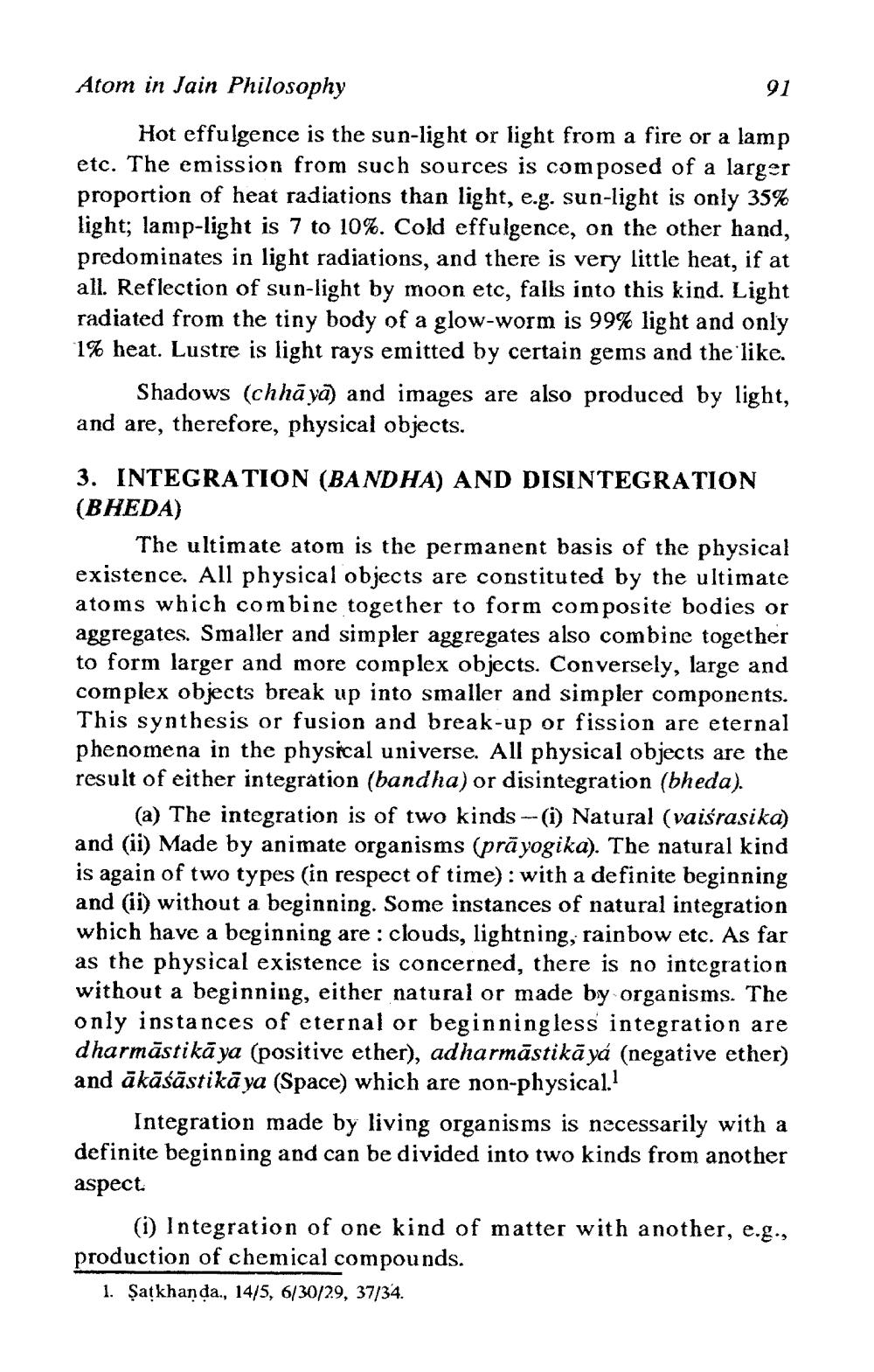________________
Atom in Jain Philosophy
91
Hot effulgence is the sun-light or light from a fire or a lamp etc. The emission from such sources is composed of a larger proportion of heat radiations than light, e.g. sun-light is only 35% light; lamp-light is 7 to 10%. Cold effulgence, on the other hand, predominates in light radiations, and there is very little heat, if at all. Reflection of sun-light by moon etc, falls into this kind. Light radiated from the tiny body of a glow-worm is 99% light and only 1% heat. Lustre is light rays emitted by certain gems and the like.
Shadows (chhāyā) and images are also produced by light, and are, therefore, physical objects.
3. INTEGRATION (BANDHA) AND DISINTEGRATION (BHEDA)
The ultimate atom is the permanent basis of the physical existence. All physical objects are constituted by the ultimate atoms which combine together to form composite bodies or aggregates. Smaller and simpler aggregates also combine together to form larger and more complex objects. Conversely, large and complex objects break up into smaller and simpler components. This synthesis or fusion and break-up or fission are eternal phenomena in the physical universe. All physical objects are the result of either integration (bandha) or disintegration (bheda).
(a) The integration is of two kinds --(i) Natural (vaisrasika) and (ii) Made by animate organisms (prāvogika). The natural kind is again of two types (in respect of time) : with a definite beginning and (ii) without a beginning. Some instances of natural integration which have a beginning are: clouds, lightning, rainbow etc. As far as the physical existence is concerned, there is no integration without a beginning, either natural or made by organisms. The only instances of eternal or beginningless integration are dharmāstikāya (positive ether), adharmāstikāyá (negative ether) and ākāśāstikā ya (Space) which are non-physical.
Integration made by living organisms is necessarily with a definite beginning and can be divided into two kinds from another aspect
(i) Integration of one kind of matter with another, e.g., production of chemical compounds.
1. Şatkhanda., 14/5, 6/30/29, 37/34.




